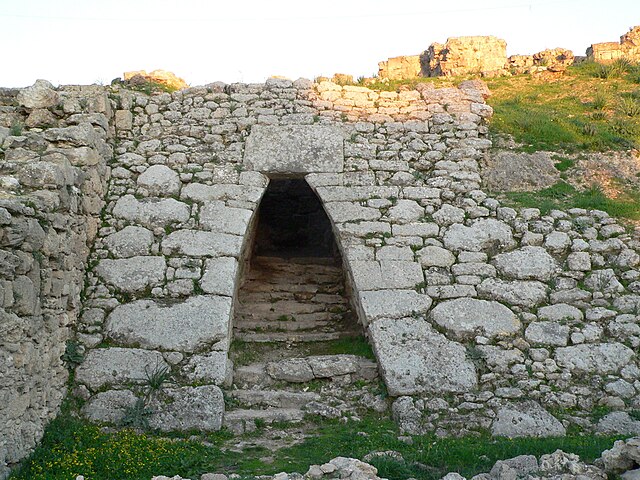The history of Syria covers events which occurred on the territory of the present Syrian Arab Republic and events which occurred in the region of Syria. Throughout ancient times the territory of present Syrian Arab Republic was occupied and ruled by several empires, including the Sumerians, Mitanni, Assyrians, Babylonians, Egyptians, Hittites, Canaanites, Phoenicians, Arameans, Amorites, Persians, Greeks and Romans. Syria is considered to have emerged as an independent country for the first time on 24 October 1945, upon the signing of the United Nations Charter by the Syrian government, effectively ending France's mandate by the League of Nations to "render administrative advice and assistance to the population" of Syria, which came in effect in April 1946.
Female figurine, Syria, 5000 BCE. Ancient Orient Museum.
The ancient city of Ugarit
Coin of Bambyce, c. 340–332 BC
The Ancient city of Apamea, Syria, one of Syria's most important commercial centres and prospering cities in Hellenistic times
The al-Assad family, also known as the Assad dynasty, is a Syrian political family that has ruled Syria since Hafiz al-Assad became president of Syria in 1971 under the Ba'ath Party. After his death, in June 2000, he was succeeded by his son Bashar al-Assad.
The Assad family, c. 1993. Front: Hafiz al-Assad and his wife, Anisa Makhlouf. Rear, left to right: Maher, Bashar, Bassel, Majid, and Bushra al-Assad
A square in Aleppo displaying the statue and portrait of Hafiz al-Assad (2001)
President Hafiz al-Assad with his family in the early 1970s. Left to right: Bashar, Maher, Anisa Makhlouf, Majid, Bushra, and Bassel
Billboard featuring Hafiz al-Assad's eldest son Bassel al-Assad (d. 1994), who was initially heralded as the successor of his father








